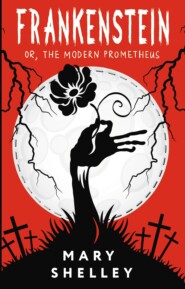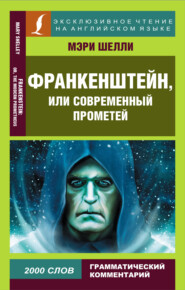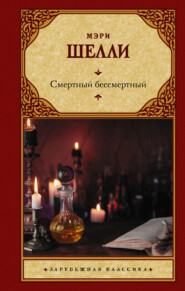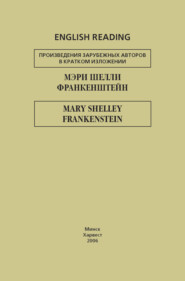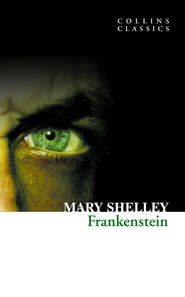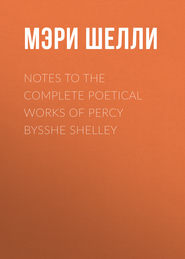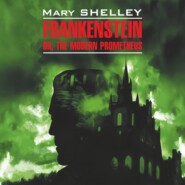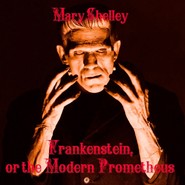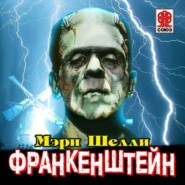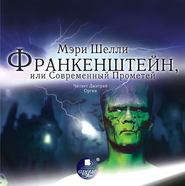По всем вопросам обращайтесь на: info@litportal.ru
(©) 2003-2024.
✖
Франкенштейн, или Современный Прометей / Frankenstein, or The Modern Prometheus. Уровень 2
Настройки чтения
Размер шрифта
Высота строк
Поля
M. Krempe gave me information about the lectures of M.Waldman. So I went into the lecturing room, which M. Waldman entered shortly after. This professor was very unlike his colleague. He was about fifty. A few grey hairs covered his temples. His person was short but remarkably erect and his voice was sweet.
“The ancient teachers of this science,” said he, “promised impossibilities and performed nothing. The modern masters promise very little. They know that metals cannot be transmuted and that the elixir of life is a chimera but these philosophers have indeed performed miracles. They penetrate into the recesses of nature and show how it works. They ascend into the heavens. They have discovered how the blood circulates, and the nature of the air we breathe.”
Such were the professor’s words. Soon my mind was filled with one thought, one conception, one purpose. The soul of Frankenstein exclaimed: I will achieve more, far more. I will explore unknown powers and unfold to the world the deepest mysteries of creation.
I did not close my eyes that night. After the morning’s dawn, sleep came. I awoke. I wanted to return to my ancient studies. On the same day I visited M. Waldman. His manners were even more mild and attractive. He smiled at the names of Cornelius, Agrippa and Paracelsus. He said,
“These men helped modern philosophers a lot. They left to us an easy task. The labours of men of genius lead to the advantage of mankind.”
I asked him about the books to read.
“I am happy,” said M. Waldman, “to have a disciple. If your application equals your ability, I have no doubt of your success. If you wish to become a real scientist and not merely an experimentalist, I advise you to study every branch of natural philosophy, including mathematics.”
He then took me into his laboratory and explained to me the uses of his various machines. He also gave me the list of books. That day decided my future destiny.
Chapter 4
From this day natural philosophy, and particularly chemistry, became my sole occupation. I read with ardour those works, I attended the lectures. In M. Waldman I found a true friend. In a thousand ways he smoothed for me the path of knowledge and made the most abstruse inquiries clear and facile.
My progress was rapid. Two years passed in this manner, during which I did not come to Geneva. I hoped to make great discoveries.
One of the phenomena which peculiarly attracted my attention was the structure of the human body. Whence, I often asked myself, did the principle of life come? It was a bold question. I began to study physiology. My application to this study was irksome and almost intolerable. To examine the causes of life, we must first examine death. I studied the science of anatomy, but this was not sufficient. I must also observe the natural decay and corruption of the human body!
I was not afraid of darkness, and a churchyard was to me merely the receptacle of bodies, which became food for the worm. Now I wanted to examine the cause and progress of this decay and spent days and nights in vaults. I saw how the fine form of man was degraded and wasted. I beheld the corruption of death; I saw how the worm inherited the eye and brain.
Remember, I am not a madman. After days and nights of incredible labour and fatigue, I discovered the cause of life. Moreover, I knew how to animate the lifeless matter.
The astonishment soon gave place to delight and rapture. This discovery was great and overwhelming.
I see, my friend, that you expect to hear that secret. That cannot be. Listen patiently until the end of my story, and you will easily perceive why not.
I found a power within my hands. But where to employ it? I could animate a lifeless body. How to prepare a frame for it? With all its intricacies of fibres, muscles, and veins. I wanted to give life to an animal as complex and wonderful as man. So I began the creation of a human being. I resolved to make the gigantic being, about eight feet in height. I collected and arranged my materials, and then I began.
I was the first man to know the secret of life and death! A new species will bless me as its creator. If I can bestow animation upon lifeless matter, I can renew life.
These thoughts supported my spirits. My cheek were pale with study, and my person was emaciated with confinement. Sometimes I failed; yet still I believed in success. One secret which I alone possessed was my hope to which I dedicated myself. I will be able to animate the lifeless clay! It was indeed a trance. I collected bones from charnel-houses and studies, with profane fingers, the tremendous secrets of the human frame. In a solitary chamber, at the top of the house,
I had my workshop of filthy creation.
The summer months passed. It was a most beautiful season, but my eyes were insensible to the charms of nature. The great object swallowed up every piece of my nature.
My father inquired into my occupations more particularly than before. Winter, spring, and summer passed away during my labours. But I did not watch the blossom or the leaves – so deeply was I engrossed in my occupation. I appeared rather like a slave than an artist. Sometimes I was alarmed at the wreck I became. The energy of my purpose alone sustained me. My labours will soon end. Exercise and amusement will then drive away incipient disease. Soon my creation will be complete!
Chapter 5
On a dreary night of November I beheld the accomplishment of my toils. With an anxiety, I collected the instruments of life around me. I wanted to infuse a spark of life into the lifeless thing that lay at my feet. It was already one o’clock in the morning. I saw the dull yellow eye of the creature. It breathed hard, and a convulsive motion agitated its limbs.
How can I describe my emotions at this catastrophe? What a wretch! Great God! His yellow skin scarcely covered the work of muscles and arteries beneath. His hair was of black. His teeth were pearly white. But these luxuriances only formed a more horrid contrast with his watery eyes, his shrivelled complexion and straight black lips.
I worked hard for nearly two years. I wanted to infuse life into an inanimate body. For this I deprived myself of rest and health. But now the beauty of the dream vanished, and breathless horror and disgust filled my heart. I rushed out of the room. I threw myself on the bed in my clothes. But I was unable to sleep.
Then I slept, indeed, but I was disturbed by the wildest dreams. I saw Elizabeth. She walked in the streets of Ingolstadt. I embraced her. But as I imprinted the first kiss on her lips, they became livid with the hue of death. Her features changed, and I held the corpse of my dead mother in my arms. I saw the grave-worms in the folds of the flannel.
I woke up with horror. A cold dew covered my forehead. My teeth chattered, and every limb became convulsed. By the dim and yellow light of the moon, I beheld the wretch – the miserable monster whom I created. He looked at me. His jaws opened, and he muttered some inarticulate sounds. A grin wrinkled his cheeks. He spoke, but I did not hear.
I rushed downstairs. I took refuge in the courtyard, where I remained during the rest of the night, in the greatest agitation. Oh! No man could support the horror of that countenance. A mummy was not so hideous as that wretch.
I passed the night wretchedly. Sometimes my pulse beat so quickly that I felt the palpitation of every artery. Sometimes I nearly sank to the ground through languor and extreme weakness. I felt the bitterness of disappointment.
Morning, dismal and wet, at length dawned. The porter opened the gates of the court, and I issued into the streets. I did not dare return to the apartment which I inhabited.
I walked for some time. I traversed the streets without any clear conception of where I was or what I was doing. My heart palpitated in the sickness of fear.
I came at length[11 - at length – наконец] to the inn. Here I paused. I saw a coach that was coming towards me from the other end of the street. It was the Swiss diligence. It stopped where I was, and on the door I perceived Henry Clerval. He saw me and exclaimed,
“My dear Frankenstein, how glad I am to see you! How fortunate that you are here!”
I was very happy to meet Clerval. His presence brought back to my thoughts my father, Elizabeth, and all scenes of sweet home. I grasped his hand, and in a moment forgot my horror and misfortune. I welcomed my friend, and we walked towards my college. Clerval talked for some time about our mutual friends and his own luck to come to Ingolstadt.
“You may easily believe,” said he, “how great was the difficulty to persuade my father that all necessary knowledge was not in the book-keeping[12 - book-keeping – бухгалтерское дело]. He said: ‘I have ten thousand florins a year without Greek, I eat heartily without Greek.’ But his affection for me overcame his dislike of university. So he permitted me to undertake this voyage to the land of knowledge.”
“It gives me the greatest delight to see you. But tell me: how are my father, brothers, and Elizabeth?”
“Very well, and very happy. But they hear from you so seldom. But, my dear Frankenstein,” continued he, “you look very ill; so thin and pale. You look as if you don’t sleep at all.”
“You are right. I have not allowed myself sufficient rest, as you see. But I hope, I sincerely hope, that all these employments are now at an end and that I am at length free.”
I trembled excessively. We soon arrived at my college. I then reflected, that the creature was still in my apartment. I dreaded to behold this monster, but I feared still more that Henry could see him. I asked Henry, therefore, to remain a few minutes at the bottom of the stairs. I went up towards my room. I then paused. I opened the door; but nothing appeared. I stepped fearfully in: the apartment was empty, and my bedroom was also free from its hideous guest. My enemy went away. I clapped my hands for joy and ran down to Clerval.
We ascended into my room, and the servant brought breakfast. Great joy possessed me. My pulse beat rapidly. I was unable to remain in the same place. I jumped over the chairs, clapped my hands, and laughed aloud. Clerval saw a wildness in my eyes, and my loud, unrestrained, heartless laughter frightened and astonished him.
“My dear Victor,” cried he, “what is the matter? Do not laugh in that manner. How ill you are! What is the cause of all this?”
“Do not ask me,” cried I. I put my hands before my eyes. I thought I saw the dreaded spectre. It glided into the room. “He can tell. Oh, save me! Save me!” I imagined that the monster seized me. I struggled furiously and fell down.
Poor Clerval! But I was not the witness of his grief, for I was lifeless and did not recover my senses[13 - did not recover my senses – не приходил в себя] for a long, long time.
This was the commencement of a nervous fever which confined me for several months. During all that time Henry was my only nurse. He concealed the extent of my disorder from my father and Elizabeth.
But I was very ill. The form of the monster was before my eyes, and I talked about him. Doubtless my words surprised Henry. He understood that my disorder indeed owed its origin to some uncommon and terrible event.
I recovered very slowly. In spring I felt sentiments of joy and affection. Then I became as cheerful as before.
“Dearest Clerval,” exclaimed I, “how kind, how very good you are to me! You spent all this winter in my sick room. How shall I ever repay you?”
“You will repay me entirely if you do not discompose yourself. Get well as fast as you can. Then I want to speak to you on one subject.”
I trembled. One subject! What is it?
“The ancient teachers of this science,” said he, “promised impossibilities and performed nothing. The modern masters promise very little. They know that metals cannot be transmuted and that the elixir of life is a chimera but these philosophers have indeed performed miracles. They penetrate into the recesses of nature and show how it works. They ascend into the heavens. They have discovered how the blood circulates, and the nature of the air we breathe.”
Such were the professor’s words. Soon my mind was filled with one thought, one conception, one purpose. The soul of Frankenstein exclaimed: I will achieve more, far more. I will explore unknown powers and unfold to the world the deepest mysteries of creation.
I did not close my eyes that night. After the morning’s dawn, sleep came. I awoke. I wanted to return to my ancient studies. On the same day I visited M. Waldman. His manners were even more mild and attractive. He smiled at the names of Cornelius, Agrippa and Paracelsus. He said,
“These men helped modern philosophers a lot. They left to us an easy task. The labours of men of genius lead to the advantage of mankind.”
I asked him about the books to read.
“I am happy,” said M. Waldman, “to have a disciple. If your application equals your ability, I have no doubt of your success. If you wish to become a real scientist and not merely an experimentalist, I advise you to study every branch of natural philosophy, including mathematics.”
He then took me into his laboratory and explained to me the uses of his various machines. He also gave me the list of books. That day decided my future destiny.
Chapter 4
From this day natural philosophy, and particularly chemistry, became my sole occupation. I read with ardour those works, I attended the lectures. In M. Waldman I found a true friend. In a thousand ways he smoothed for me the path of knowledge and made the most abstruse inquiries clear and facile.
My progress was rapid. Two years passed in this manner, during which I did not come to Geneva. I hoped to make great discoveries.
One of the phenomena which peculiarly attracted my attention was the structure of the human body. Whence, I often asked myself, did the principle of life come? It was a bold question. I began to study physiology. My application to this study was irksome and almost intolerable. To examine the causes of life, we must first examine death. I studied the science of anatomy, but this was not sufficient. I must also observe the natural decay and corruption of the human body!
I was not afraid of darkness, and a churchyard was to me merely the receptacle of bodies, which became food for the worm. Now I wanted to examine the cause and progress of this decay and spent days and nights in vaults. I saw how the fine form of man was degraded and wasted. I beheld the corruption of death; I saw how the worm inherited the eye and brain.
Remember, I am not a madman. After days and nights of incredible labour and fatigue, I discovered the cause of life. Moreover, I knew how to animate the lifeless matter.
The astonishment soon gave place to delight and rapture. This discovery was great and overwhelming.
I see, my friend, that you expect to hear that secret. That cannot be. Listen patiently until the end of my story, and you will easily perceive why not.
I found a power within my hands. But where to employ it? I could animate a lifeless body. How to prepare a frame for it? With all its intricacies of fibres, muscles, and veins. I wanted to give life to an animal as complex and wonderful as man. So I began the creation of a human being. I resolved to make the gigantic being, about eight feet in height. I collected and arranged my materials, and then I began.
I was the first man to know the secret of life and death! A new species will bless me as its creator. If I can bestow animation upon lifeless matter, I can renew life.
These thoughts supported my spirits. My cheek were pale with study, and my person was emaciated with confinement. Sometimes I failed; yet still I believed in success. One secret which I alone possessed was my hope to which I dedicated myself. I will be able to animate the lifeless clay! It was indeed a trance. I collected bones from charnel-houses and studies, with profane fingers, the tremendous secrets of the human frame. In a solitary chamber, at the top of the house,
I had my workshop of filthy creation.
The summer months passed. It was a most beautiful season, but my eyes were insensible to the charms of nature. The great object swallowed up every piece of my nature.
My father inquired into my occupations more particularly than before. Winter, spring, and summer passed away during my labours. But I did not watch the blossom or the leaves – so deeply was I engrossed in my occupation. I appeared rather like a slave than an artist. Sometimes I was alarmed at the wreck I became. The energy of my purpose alone sustained me. My labours will soon end. Exercise and amusement will then drive away incipient disease. Soon my creation will be complete!
Chapter 5
On a dreary night of November I beheld the accomplishment of my toils. With an anxiety, I collected the instruments of life around me. I wanted to infuse a spark of life into the lifeless thing that lay at my feet. It was already one o’clock in the morning. I saw the dull yellow eye of the creature. It breathed hard, and a convulsive motion agitated its limbs.
How can I describe my emotions at this catastrophe? What a wretch! Great God! His yellow skin scarcely covered the work of muscles and arteries beneath. His hair was of black. His teeth were pearly white. But these luxuriances only formed a more horrid contrast with his watery eyes, his shrivelled complexion and straight black lips.
I worked hard for nearly two years. I wanted to infuse life into an inanimate body. For this I deprived myself of rest and health. But now the beauty of the dream vanished, and breathless horror and disgust filled my heart. I rushed out of the room. I threw myself on the bed in my clothes. But I was unable to sleep.
Then I slept, indeed, but I was disturbed by the wildest dreams. I saw Elizabeth. She walked in the streets of Ingolstadt. I embraced her. But as I imprinted the first kiss on her lips, they became livid with the hue of death. Her features changed, and I held the corpse of my dead mother in my arms. I saw the grave-worms in the folds of the flannel.
I woke up with horror. A cold dew covered my forehead. My teeth chattered, and every limb became convulsed. By the dim and yellow light of the moon, I beheld the wretch – the miserable monster whom I created. He looked at me. His jaws opened, and he muttered some inarticulate sounds. A grin wrinkled his cheeks. He spoke, but I did not hear.
I rushed downstairs. I took refuge in the courtyard, where I remained during the rest of the night, in the greatest agitation. Oh! No man could support the horror of that countenance. A mummy was not so hideous as that wretch.
I passed the night wretchedly. Sometimes my pulse beat so quickly that I felt the palpitation of every artery. Sometimes I nearly sank to the ground through languor and extreme weakness. I felt the bitterness of disappointment.
Morning, dismal and wet, at length dawned. The porter opened the gates of the court, and I issued into the streets. I did not dare return to the apartment which I inhabited.
I walked for some time. I traversed the streets without any clear conception of where I was or what I was doing. My heart palpitated in the sickness of fear.
I came at length[11 - at length – наконец] to the inn. Here I paused. I saw a coach that was coming towards me from the other end of the street. It was the Swiss diligence. It stopped where I was, and on the door I perceived Henry Clerval. He saw me and exclaimed,
“My dear Frankenstein, how glad I am to see you! How fortunate that you are here!”
I was very happy to meet Clerval. His presence brought back to my thoughts my father, Elizabeth, and all scenes of sweet home. I grasped his hand, and in a moment forgot my horror and misfortune. I welcomed my friend, and we walked towards my college. Clerval talked for some time about our mutual friends and his own luck to come to Ingolstadt.
“You may easily believe,” said he, “how great was the difficulty to persuade my father that all necessary knowledge was not in the book-keeping[12 - book-keeping – бухгалтерское дело]. He said: ‘I have ten thousand florins a year without Greek, I eat heartily without Greek.’ But his affection for me overcame his dislike of university. So he permitted me to undertake this voyage to the land of knowledge.”
“It gives me the greatest delight to see you. But tell me: how are my father, brothers, and Elizabeth?”
“Very well, and very happy. But they hear from you so seldom. But, my dear Frankenstein,” continued he, “you look very ill; so thin and pale. You look as if you don’t sleep at all.”
“You are right. I have not allowed myself sufficient rest, as you see. But I hope, I sincerely hope, that all these employments are now at an end and that I am at length free.”
I trembled excessively. We soon arrived at my college. I then reflected, that the creature was still in my apartment. I dreaded to behold this monster, but I feared still more that Henry could see him. I asked Henry, therefore, to remain a few minutes at the bottom of the stairs. I went up towards my room. I then paused. I opened the door; but nothing appeared. I stepped fearfully in: the apartment was empty, and my bedroom was also free from its hideous guest. My enemy went away. I clapped my hands for joy and ran down to Clerval.
We ascended into my room, and the servant brought breakfast. Great joy possessed me. My pulse beat rapidly. I was unable to remain in the same place. I jumped over the chairs, clapped my hands, and laughed aloud. Clerval saw a wildness in my eyes, and my loud, unrestrained, heartless laughter frightened and astonished him.
“My dear Victor,” cried he, “what is the matter? Do not laugh in that manner. How ill you are! What is the cause of all this?”
“Do not ask me,” cried I. I put my hands before my eyes. I thought I saw the dreaded spectre. It glided into the room. “He can tell. Oh, save me! Save me!” I imagined that the monster seized me. I struggled furiously and fell down.
Poor Clerval! But I was not the witness of his grief, for I was lifeless and did not recover my senses[13 - did not recover my senses – не приходил в себя] for a long, long time.
This was the commencement of a nervous fever which confined me for several months. During all that time Henry was my only nurse. He concealed the extent of my disorder from my father and Elizabeth.
But I was very ill. The form of the monster was before my eyes, and I talked about him. Doubtless my words surprised Henry. He understood that my disorder indeed owed its origin to some uncommon and terrible event.
I recovered very slowly. In spring I felt sentiments of joy and affection. Then I became as cheerful as before.
“Dearest Clerval,” exclaimed I, “how kind, how very good you are to me! You spent all this winter in my sick room. How shall I ever repay you?”
“You will repay me entirely if you do not discompose yourself. Get well as fast as you can. Then I want to speak to you on one subject.”
I trembled. One subject! What is it?






